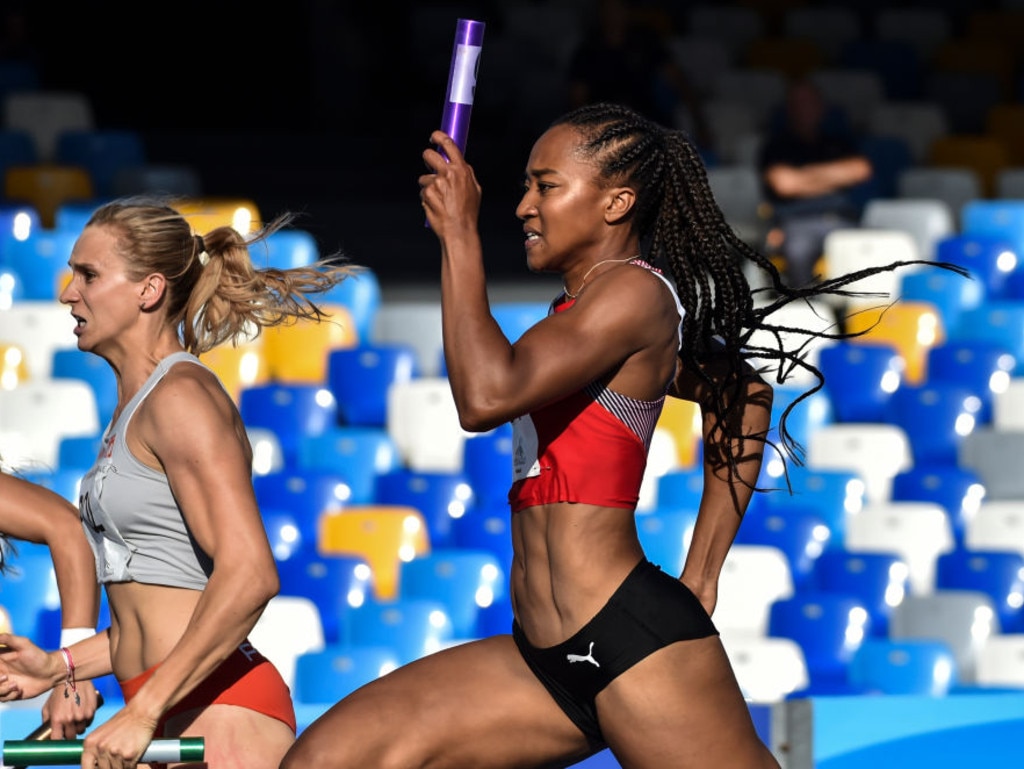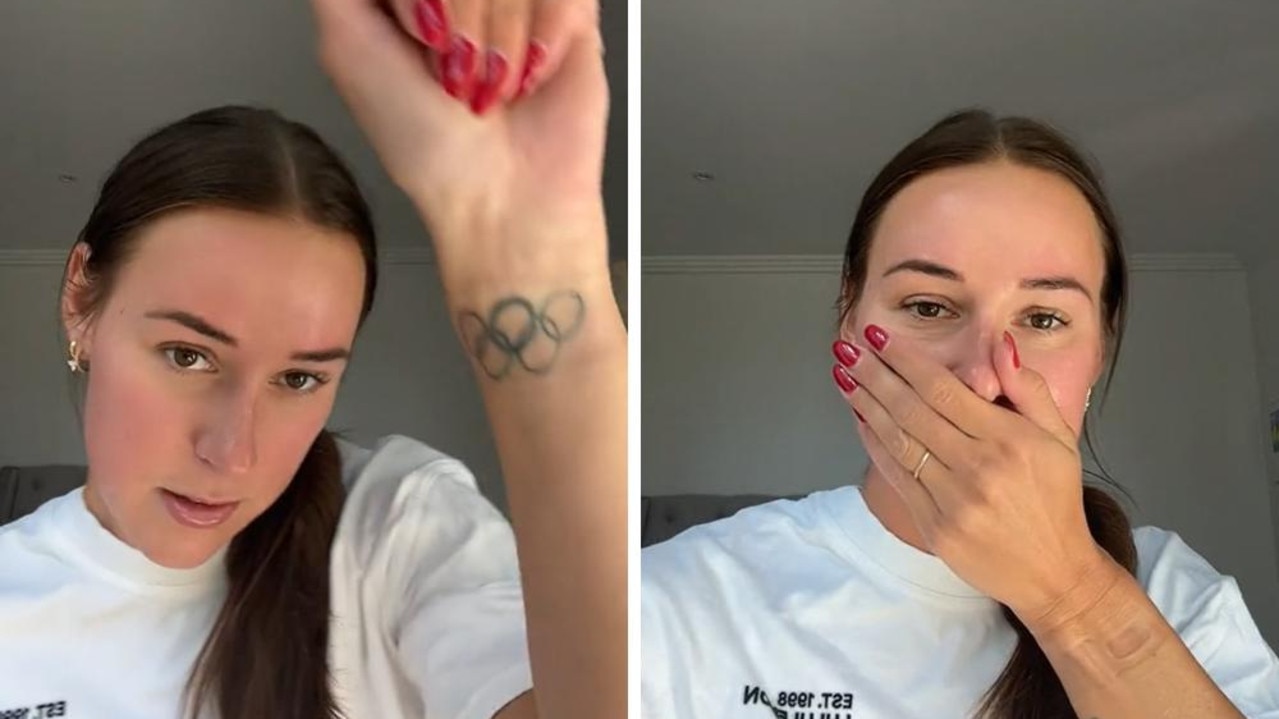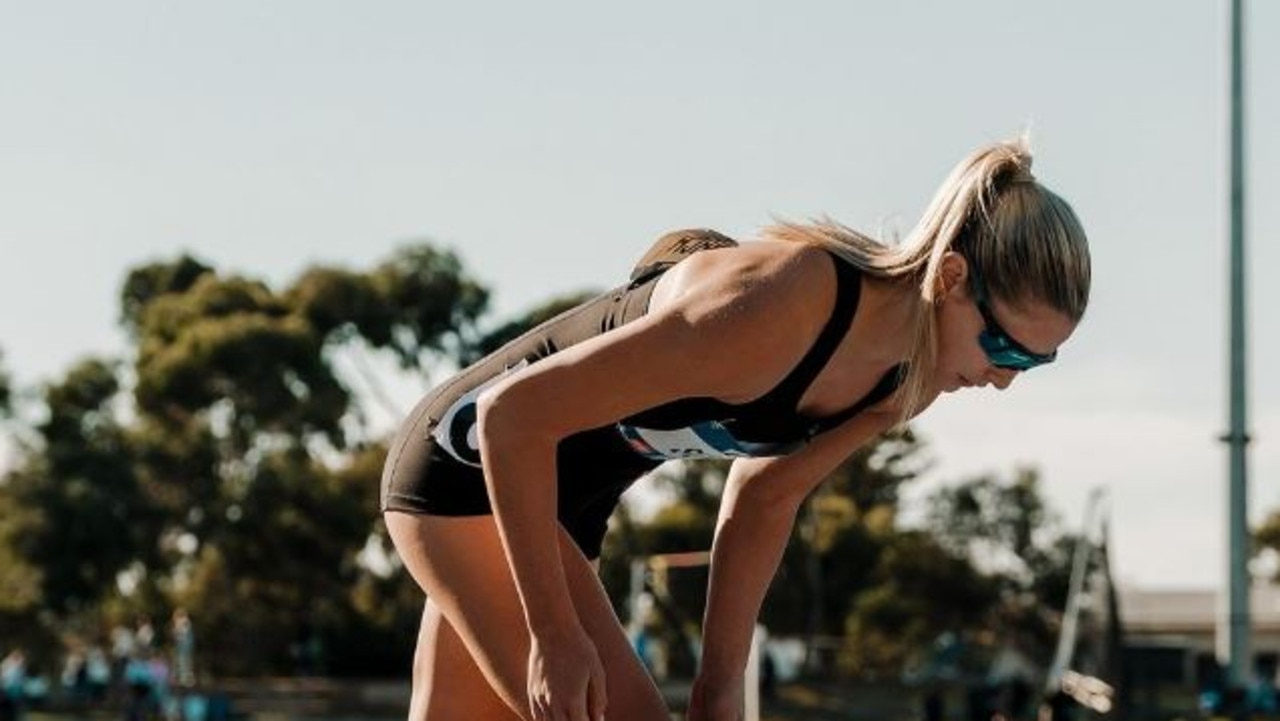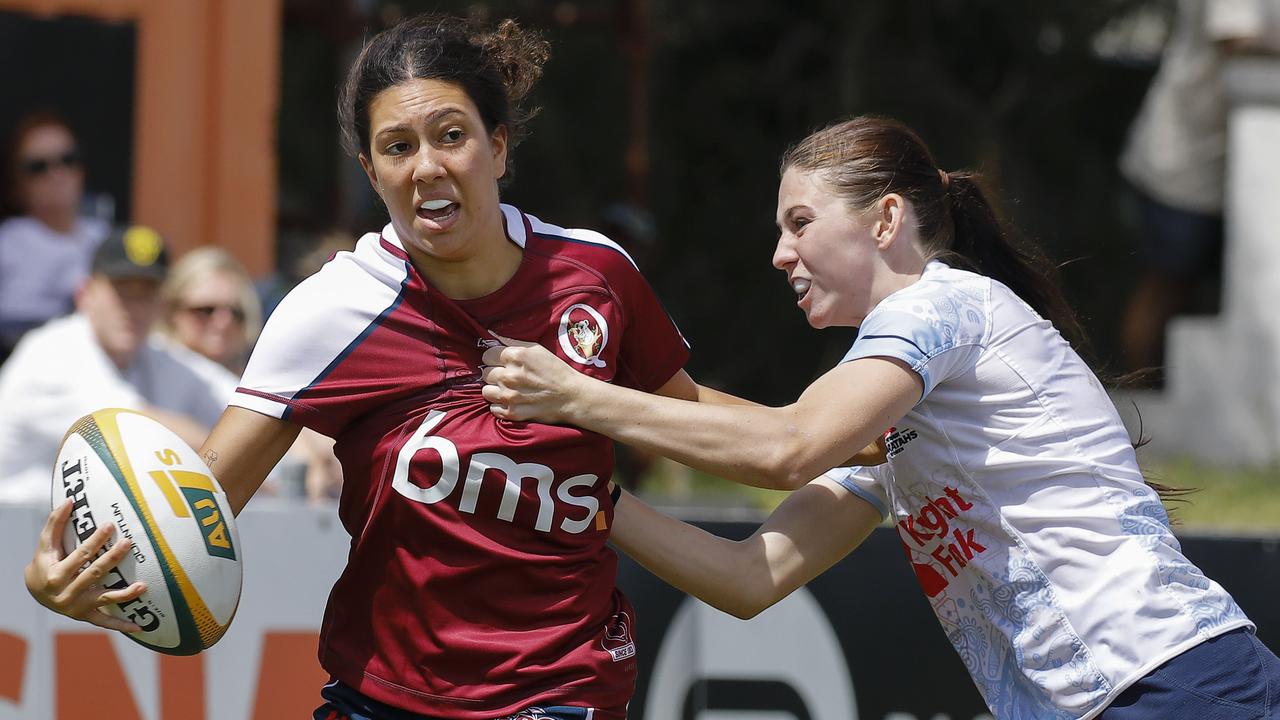Swiss sprinter Sarah Atcho diagnosed with pericarditis after Pfizer booster shot
An Olympic sprinter says she is “upset” at being diagnosed with a rare heart condition after getting her Pfizer booster shot.

Olympics
Don't miss out on the headlines from Olympics. Followed categories will be added to My News.
An Olympic sprinter says she is “upset” at being diagnosed with a rare heart condition after getting her Pfizer booster shot.
Swiss athlete Sarah Atcho, who competed in the four-by-100 metres relay at the 2016 Brazil Olympics, revealed in an Instagram post to her 22,000 followers this week that she had been diagnosed with pericarditis, or inflammation of the lining around the heart.
Pericarditis and more serious myocarditis, or inflammation of the heart muscle, are known but rare side effects of the Pfizer and Moderna mRNA Covid-19 vaccines.
The 26-year-old said she received her booster on December 22 “because I didn’t want to struggle with this when the season started”.
“I was told that it was safer to get Pfizer to avoid cardiac side effects,” she wrote.
“On December 27 I felt a tightness in the chest and started feeling dizzy while walking up the stairs. This happened a few more times until I decided to check with a cardiologist who diagnosed me with pericarditis (inflammation of the thin membrane surrounding the heart). I am now not allowed to get my heart rate up for a few weeks to allow my heart to rest and heal from the inflammation.”
Last month, former Aussie basketballer Ben Madgen also revealed he had been hospitalised with pericarditis after his second Pfizer shot.
Atcho said she was still working with her coach doing everything she could “to keep my muscles moving”.
“I have to admit that I am upset at the situation because we don’t talk enough about the side effects,” she said.
“I feel helpless since this is completely out of my control. I am glad the vaccine helped avoid many deaths and reduce the pressure on the hospitals and hospital staff however I am frustrated that myself as well as other young and healthy people are suffering from these heavy side effects.”
She added, “I hope you understand why it is important for me to share, I’ll keep you guys updated on the process. Let me know if you’re experiencing the same, let’s help each other!”
Her post has attracted nearly 12,000 likes.
“Praying for a full and speedy recovery,” one follower wrote.
“Thanks for speaking up for others and raising awareness,” another said.

It comes after Australia’s medicines regulator last week confirmed the first cases of myocarditis and pericarditis after boosters.
As of January 9, there have been six reports of likely myocarditis – four after Pfizer and two after Moderna – and 12 reports of likely pericarditis – 10 after Pfizer and two after Moderna – after a third or booster dose of a Covid-19 vaccine, according to the Therapeutic Goods Administration’s (TGA) weekly safety update.
“The TGA is monitoring the safety of booster vaccine doses in adults,” the regulator said.
“It is not expected that the types of side effects will be different to first and second vaccine doses based on the results of clinical trials, and observations from regulators overseas where more booster doses have been given.”
According to the TGA, myocarditis – which it describes as “very rare” – is reported in about one to two out of every 100,000 people who receive Pfizer and two to three out of every 100,000 who receive Moderna in Australia.
As of Thursday, 92.8 per cent of over-16s in Australia are fully vaccinated and nearly 5.8 million adults have received a third dose, according to federal Health Department figures.
Several states including NSW and Victoria have already mandated booster shots for some frontline workers due to the Omicron outbreak, while also shortening the interval from four to three months after the second dose.
Victorian Premier Daniel Andrews on Wednesday warned boosters would soon become mandatory more widely, saying they were not an “optional extra”.
“This is not an option, not an add-on, not a ‘good thing to have’,” he told reporters.
“I think we’re close to a change in policy that will simply reflect the fact that in order to be fully protected you need three doses, not two plus an optional extra.”
Mr Andrews said on Thursday he would be pushing national cabinet to change the definition of fully vaccinated.
“This is a three-dose project,” he said. “To be properly protected, you need three doses. That is what the experts tell us and what I expect national cabinet to reflect today.”

Earlier this week, Israeli researchers said preliminary data from more than 270 medical workers showed even a fourth dose was “not good enough” to prevent Omicron.
“Despite increased antibody levels, the fourth vaccine only offers a partial defence against the virus,” said study lead Dr Gili Regev-Yochay, director of Sheba Hospital’s infectious disease unit.
Meanwhile, a South African study published in The Lancet on Tuesday concluded that booster shots of mRNA vaccines failed to block Omicron.
The study investigated seven German visitors to Cape Town, who experienced breakthrough infections with Omicron between late November and early December 2021, despite being boosted.
“These were the first documented breakthrough infections with the Omicron variant in fully vaccinated individuals after receipt of booster vaccine doses,” the authors wrote.
While the mild to moderate illness in the group suggested a full vaccination course followed by a booster “still provides good protection against severe disease”, the authors said their study “demonstrates insufficient prevention of symptomatic infection in otherwise healthy individuals who had received three doses of Covid-19 mRNA vaccines”.
“These findings support the need for updated vaccines to provide better protection against symptomatic infection with Omicron and emphasise that non-pharmaceutical measures should be maintained,” they wrote.
The World Health Organisation has warned that a vaccination strategy “based on repeated booster doses of the original vaccine composition is unlikely to be appropriate or sustainable”.
Pfizer chief executive Albert Bourla last week said two doses of its current Covid-19 vaccine offer “very limited protection, if any” against Omicron, while three doses “offer reasonable protection against hospitalisation and deaths”.
Dr Bourla said Pfizer was working on an Omicron-specific version of the vaccine, which should be available by March.
Originally published as Swiss sprinter Sarah Atcho diagnosed with pericarditis after Pfizer booster shot









